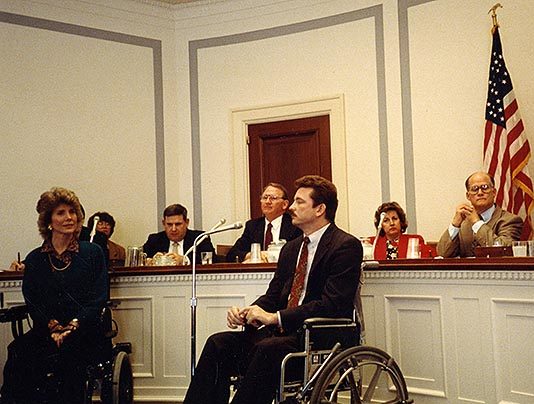The Importance of Recruiting and Retaining Neurodiverse Employees

“We must do better.” These were the words of UN Secretary General Antonio Guterres on World Autism Day in 2023. This one phrase sums up the current sentiment of many employers and the call to the generation that will be entering the workforce in the coming years.
“We must do better—by promoting inclusive education, equal employment opportunities, self-determination, and an environment where every person is respected.”
In a time of great division, many companies are embracing the idea of creating more inclusive workspaces, because the facts speak for themselves.
Although many neurodivergent people don’t see their autism or ADHD, for example, as disabilities, they are still categorized that way. That being said, companies that employed more people with disabilities achieved 28 percent higher revenue on average. One in five, or roughly 20 percent, of the adult population in the United States is neurodivergent. That is a large segment of the workforce. In a recent survey, 51 percent of neurodivergent workers said they either want to or already have quit their jobs. Companies stand to face huge losses by not recruiting and retaining neurodiverse workforces.
Studies have shown that neurodiverse employees promote creativity, innovation, and productivity.
Businesses that do employ a neurodiverse workforce report that productivity increases as do innovative practices, due to the unique abilities that come with various neurodivergent employees.
As one executive said, “Having people who see things differently and who maybe don’t fit in seamlessly helps offset our tendency, as a big company, to all look in the same direction.”
For example, some companies are employing neurodiverse workers in cybersecurity to spot intrusions and attacks because it has been proven they can spot patterns that no one else sees.

Much of the time, necessary accommodations are simple, such as headphones to block out noise or slightly altered lighting in a work area, but the returns are large.
“Those… include productivity gains, quality improvement, boosts in innovative capabilities, and broad increases in employee engagement.”
The special considerations needed are amazingly free; the primary change required has to do with mindset rather than structure or resources. There are already many companies rethinking HR practices to create a culture of normalcy around open and honest discussion of varying abilities. Hewlett-Packard, Microsoft, and Ford are some of the most prominent American companies who have begun this work. What some are calling “the next frontier for corporate social responsibility” is underway in both large and small organizations.
Recent studies show how many current recruiting and hiring efforts are geared toward recruiting employees researchers consider “WEIRD.” That stands for Western, Educated, Industrialized, Rich, and Democratic. Some HR software systems are biased against the neurodivergent population, because they are designed to filter out certain résumés. However, many companies are now adjusting these systems, or even swapping them out altogether, to create more inclusive pools of prospective employees.

What they have found in the process is that these changes don’t just create a more inclusive workforce; they also improve the company’s overall culture and performance. Even the term human resources is being changed to better terms such as human operations or leadership development. On the whole, employers seeing the members of their workforce as integral parts of a whole, instead of assets or “resources” to be used for the company’s bottom line.
Without adjusting to facilitate neurodiverse employees, companies stand to lose in substantial ways.
We are now living in a period when employees have more options and more power. Millennials are willing to walk away from dissatisfying working conditions to find better opportunities. As Baby Boomers retire and Millennials and Gen Zers take over the workforce, executives are seeing not just the opportunity but also the need to change the idea of what the workforce is and the workplace should look like. Universal design is becoming commonplace in the boardroom as well as in the classroom.

Deloitte reports that companies that hire and foster neurodiverse employees are eight times more innovative and have double the net income! That is a huge advantage over competitors. As a bonus, when we apply principles designed to accommodate neurodiverse employees, the changes are actually good for everyone.
Better designed workspaces and more flexible work schedules help to retain all employees, not just the neurodiverse ones.
These are good work practices—and they also save money. That’s largely because retaining employees is much less expensive than hiring new ones. Companies that employ these methods for inclusivity create environments of psychological safety, innovation, collaboration, and trust. These are benefits for everyone, no matter the person or their role.
When it comes to recruiting and retaining more neurodiverse employees, the “rising tide lifts all boats” theory has proven to be true. The research and data show that everyone benefits. The anecdotal evidence from the people who experience the workplace changes bears this out as well.
There is no doubt that a happier employee is a more productive employee.
Whether management sees an opportunity to do the right thing simply because it is the right thing or they’re motivated by good business sense, the evidence is clear: companies that adjust their hiring processes and their work environments to create inclusive environments are more competitive and outperform those that don’t.
Written By—Aimée Stork and Riley Stork
Stefan Ellerbeck, “Employers now see neurodiversity as a strength in the workplace. Here’s why,” The World Economic Forum, May 2, 2023, https://www.weforum.org/agenda/2023/05/neurodiversity-employers-workers-jobs/.
Jared Lindzon, “How disabled employees improve company performance,” Fast Company, March 13, 2019, https://www.fastcompany.com/90311742/why-companies-who-hire-people-with-disabilities-outperformed-their-peers?partner=rss&utm_source=twitter.com&utm_medium=social&utm_campaign=rss+fastcompany&utm_content=rss.
Ginger Christ, “Half of neurodivergent workers say they want to quit their jobs — or already have,” HR Dive, April 5, 2023, https://www.hrdive.com/news/half-of-neurodivergent-workers-want-to-quit-their-jobs-or-already-have/646889/.
A. Krzeminska, R. Austin, S. Bruyère, S, and D. Hedley, “The advantages and challenges of neurodiversity employment in organizations,” Journal of Management & Organization, 2019, 25(4), 453.
Robert D. Austin and Gary P. Pisano, “Neurodiversity as a Competitive Advantage,” Harvard Business Review, May/June 2017, https://hbr.org/2017/05/neurodiversity-as-a-competitive-advantage.
Ibid.
Ibid.
Lindzon, “How disabled employees improve company performance.”
Stella Collins, Neuroscience for Learning and Development: How to Apply Neuroscience and Psychology for Improved Learning and Training (London: Kogan Page, 2019), 41.
Robert D. Austin and Gary P. Pisano, “Neurodiversity as a Competitive Advantage.”
“Global survey: The workplace is failing a major demographic,” Alludo, March 3, 2023, https://www.alludo.com/en/newsroom/news/data-insights/neurodiversity-at-work-report/.
Sylvia Ann Hewlett, “Millennials with Disabilities: A Large, Invisible Talent Cohort with Innovative Potential,” Inc., November 17, 2017, https://www.inc.com/sylvia-ann-hewlett/millennials-with-disabilities-a-large-invisible-talent-cohort-with-innovative-potential.html.
Global survey: The workplace is failing a major demographic.”

God’s Power in Weakness
Looking back on 55 years in a wheelchair, Joni reflects on the Lord’s faithfulness amid her adversity. She shares how trusting God through hardship has given her strength to not only persevere but live with hope and joy!





